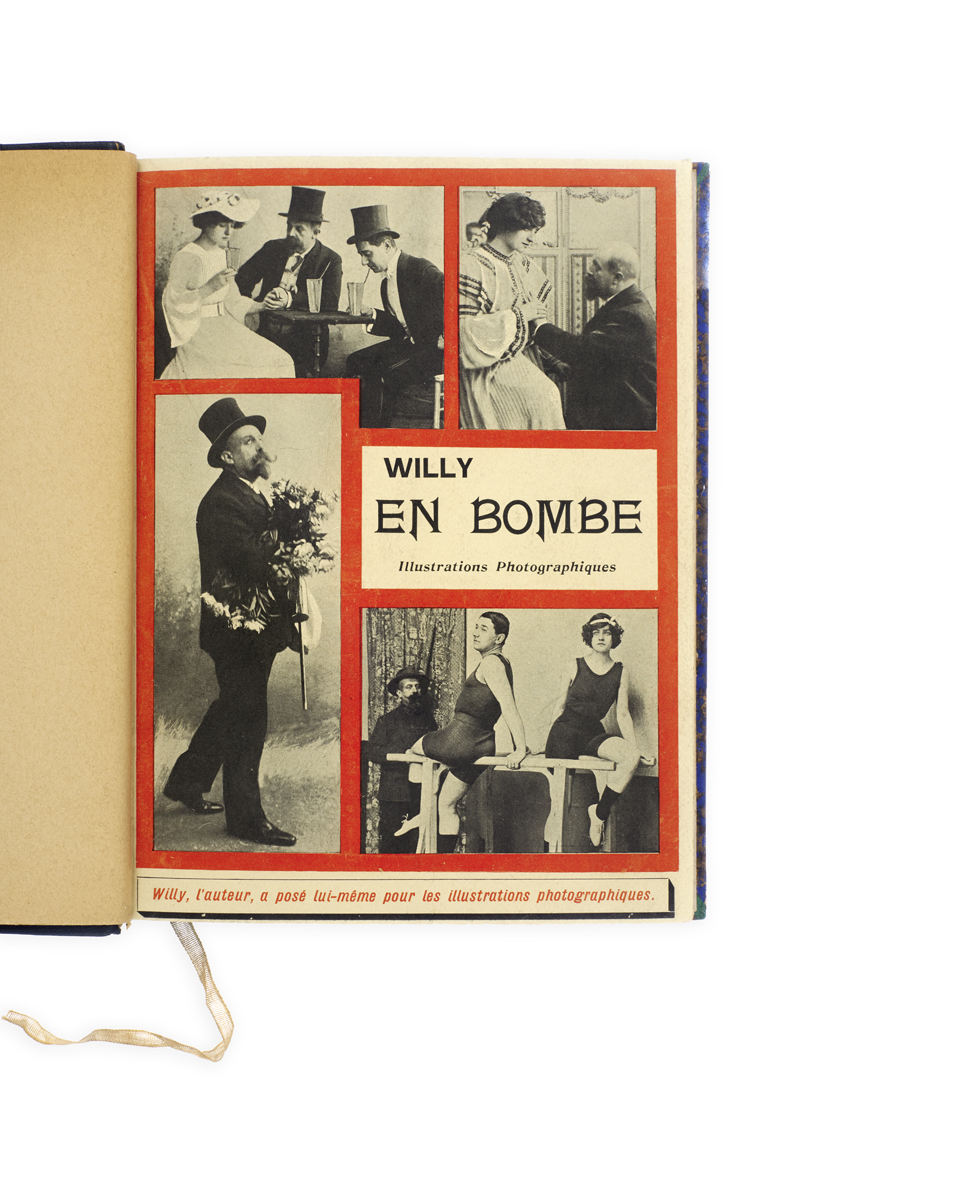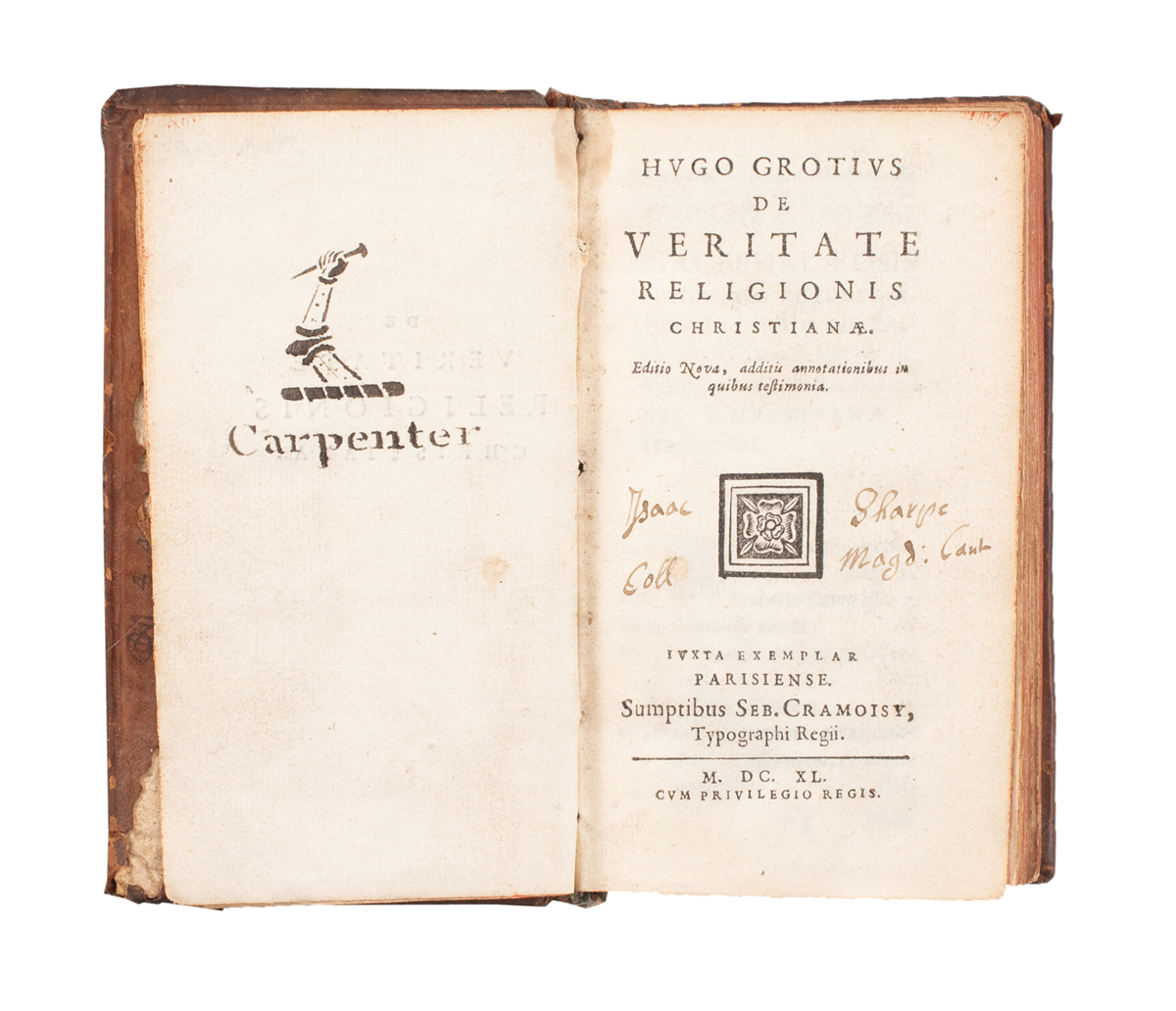
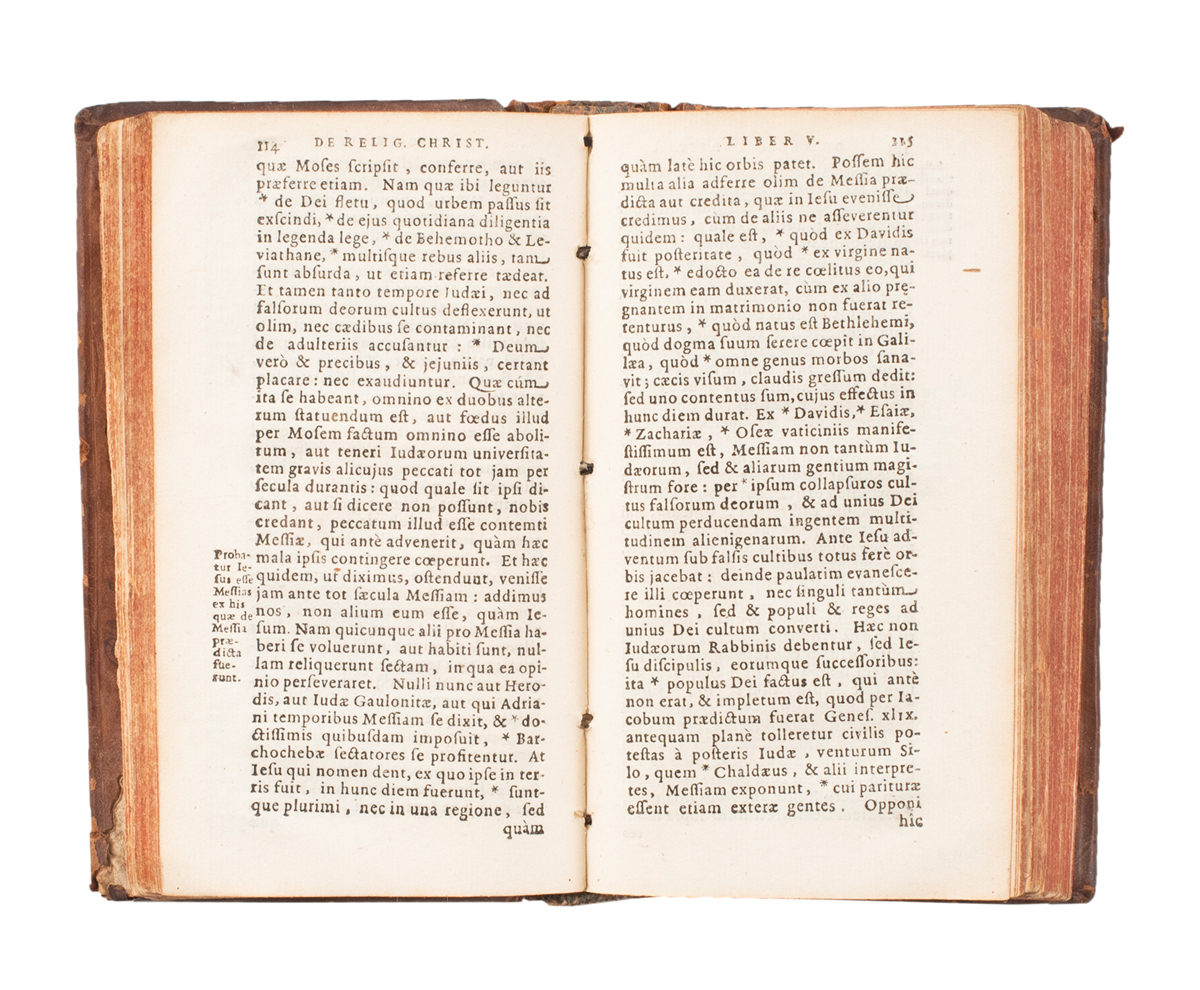
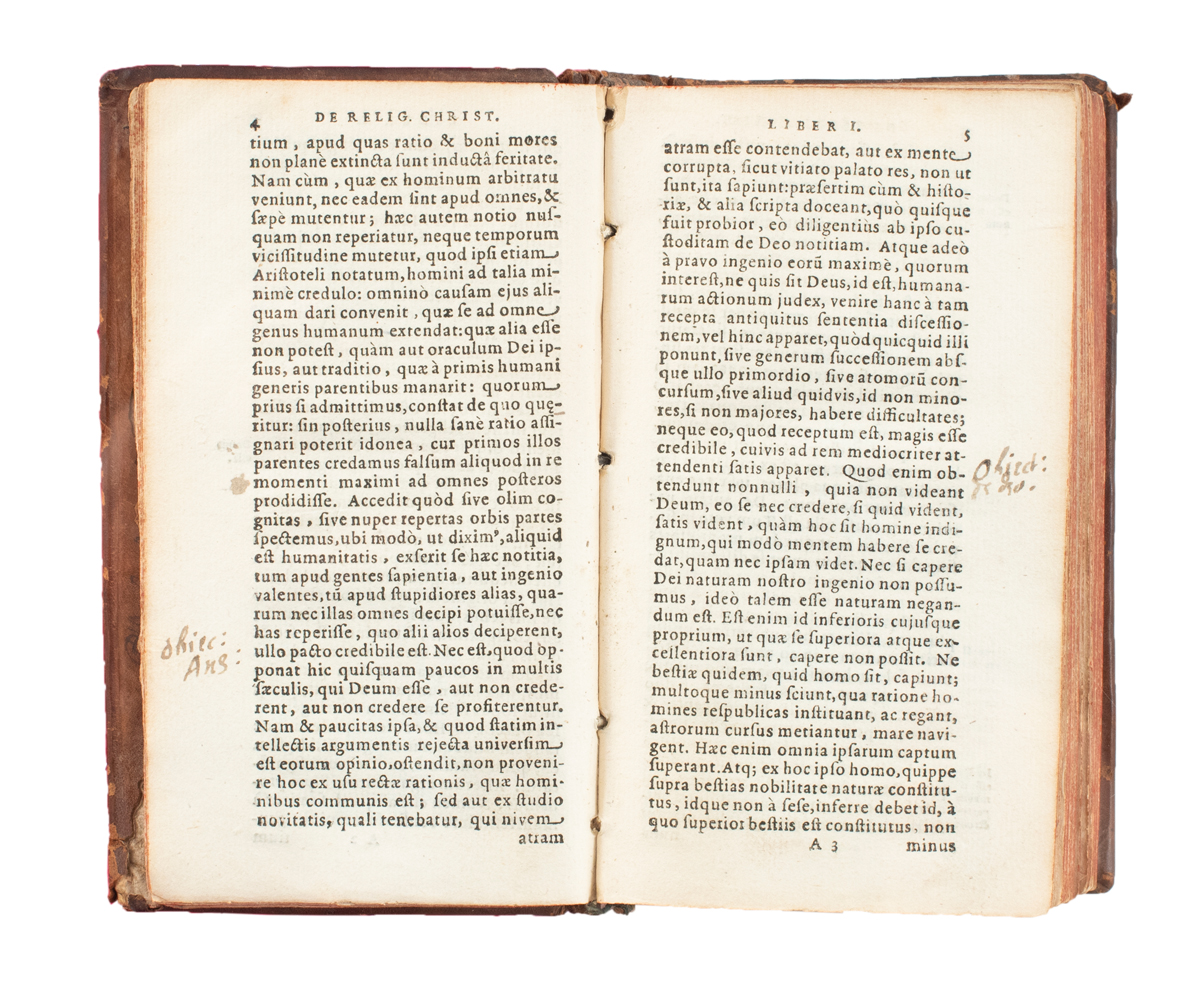
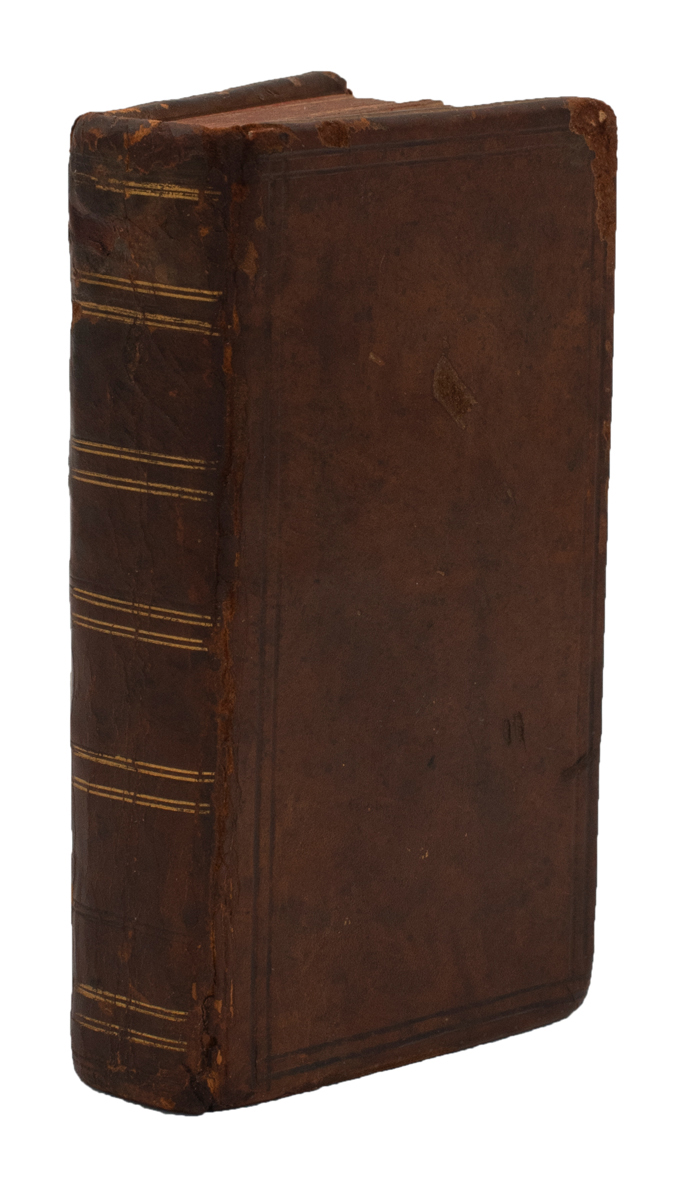
WITH EARLY ENGLISH PROVENANCE
GROTIUS, Hugo.
De veritate religionis Christianae, editio nova, additis annotationibus in quibus testimonia.
[Amsterdam, Jan Jansson?] ‘Juxta exemplar parisiense sumptibus Seb. Cramoisy’, 1640.
12mo, pp. [16], ‘274’ [recte 374], [2 (privilege, blank)]; with half-title, woodcut rose to title, woodcut initials and typographic headpieces; wormhole to outer margin of final leaves, otherwise a very good, clean copy; contemporary English calf, spine ruled in gilt and blind, edges speckled red, sewn two-up on 3 sunken thongs; lightly rubbed with a few minor scuffs; later seventeenth-century ink ownership of Isaac Sharpe (Magdalene College Cambridge) to title with a few scattered annotations and reading marks in his hand, subsequent ownership marks (of ‘RRB’?) and price (1/-), later ink stencil “Carpenter” and stamp “from Mount Tavy” to front free endpaper.

Added to your basket:
De veritate religionis Christianae, editio nova, additis annotationibus in quibus testimonia.
A pocket-edition of Grotius’s argument for the Christian religion; a very good copy with reading marks by the English pamphleteer Isaac Sharpe.
‘The formal purpose of the work was to persuade Jews or Muslims to convert to Christianity, and Grotius used two kinds of argument. The first and less important was the claim that the historical records of Christ’s miraculous status were probably true. The second type of argument was based on the same analysis of what we might call “natural” religion as that provided in De iure belli ac pacis. The moral point of a religion was to elicit from men conduct appropriate to the needs of society, and Christianity fulfilled this purpose far better than its principal competitors’ (Tuck, p. 195).
Grotius composed this work during his imprisonment of 1619-21 and published an initial version in Dutch in 1622. The Latin version, which enjoyed an extremely wide readership, first appeared in 1628. The 1640 Paris edition, which this reprints, was the first to include Grotius’s annotations.
Provenance: Isaac Sharpe (or Sharp, c. 1659–1757) was admitted to Magdalene in 1677 and elected a fellow in 1683. He was ordained in 1685 and, as curate of Stepney, published a string of anonymous and pseudonymous pamphlets in the first two decades of the eighteenth century.
STCN 08733416X; see Tuck, Philosophy and Government.
